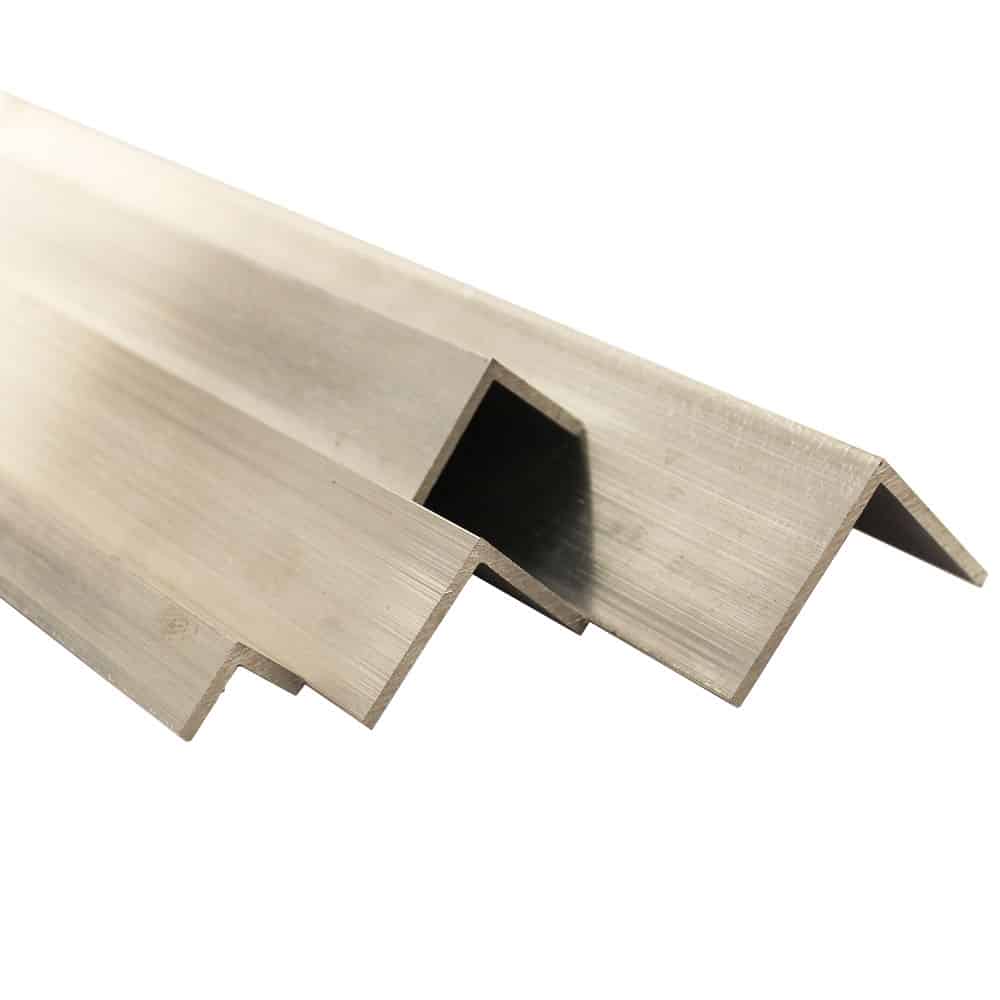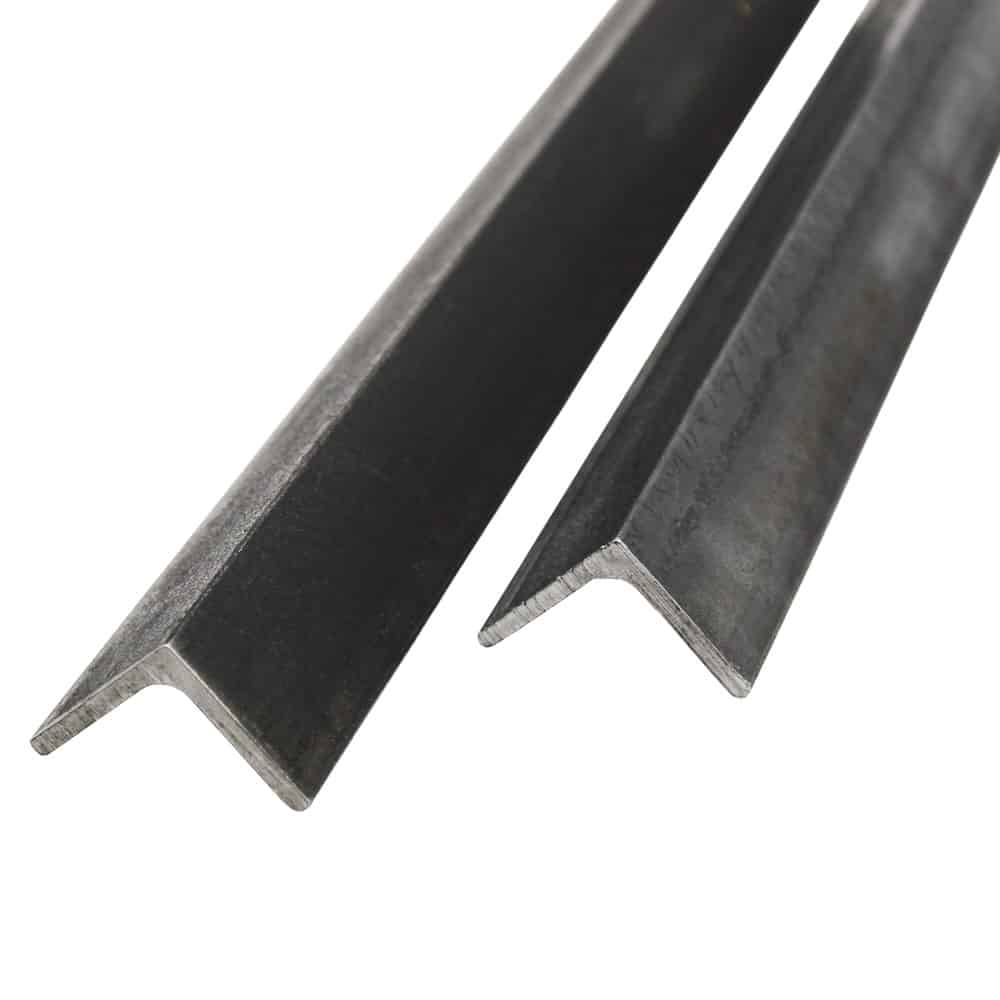- Massive Range
- FREE UK Delivery
- Rapid Dispatch
- Massive Range
- FREE UK Delivery
- Rapid Dispatch
- Massive Range
- FREE UK Delivery
- Rapid Dispatch
£16.99 – £31.99 inc VAT


This website is secured:
✔ Specialists In Rapid Shipments Of Any Size
✔ FREE UK Delivery Included
✔ Immediate Express Dispatch From Stock
✔ Tracked Delivery with Order Updates
✔ 30-Day Returns Accepted
£ Check Out Our Clearance Listing For Savings
@ ☏ Bespoke Sizes & Larger Sheets Available
If you’re in need of a versatile and durable steel bar for your next project, look no further than the 30mm x 30mm x 3mm Mild Steel Angle Steel Bar Section by Speciality Metals. This bar is made from DC01 Grade steel and boasts amazing welding, bending, forming and machining abilities.
Plus, it’s cost-effective and recyclable, making it an environmentally-friendly choice. And don’t forget about its ductility – it can be bent and shaped to fit any design needs. So why not give it a try and elevate your project to the next level?

Our top-quality angle steel bar iron is cut, packed and shipped by our terrific team in Warrington, UK within 24 hours. We pride ourselves on our speed for orders of all sizes.
Speciality Metals boast an enormous range of mild steel angle. If you require stainless steel or aluminium we’ve got you covered. We truly are an industry leader among suppliers of many metal products. With our in-house capabilities, we can provide virtually anything you need for your project.
Angle steel bars are popular choices for construction and manufacturing industries due to their durability, versatility and ease of welding, bending, forming and machining. The 30mm x 30mm x 3mm Mild Steel Angle Steel Bar Section, manufactured by Speciality Metals with DC01 Grade, is a cost-effective solution that is also environmentally friendly. The ductility of this angle steel bar allows it to be easily shaped and modified to meet specific design requirements. As a leading supplier of high-quality angle steel bars, Speciality Metals takes pride in providing superior performance at an affordable price.
We the exact suppliers for you because:
Check out our blog discussing mild steel angle. This gives you a beginners guide to the product which should answer any question that you may have.
In addition to being a very useful fence post, our mild steel angle iron bar is also suitable for the construction of fences or trailers. As a result, it offers a solid and reliable structure as well as a high degree of recycling, making it a very environmentally friendly choice. We offer this section bar in a variety of sizes and thicknesses.
Key product details:
We also carry a wide range of mild steel sheet metal and flat bar.
Yes, mild steel angle bars are commonly used in construction applications. They are used for constructing frames, structures and other components in buildings, bridges and other infrastructure. Mild steel provides a good balance of strength, ductility and weldability, making it suitable for many construction applications. Additionally, mild steel angle bars can be easily cut, shaped and welded, making them suitable for constructing complex structures.
Corrosion Resistance: Mild steel is susceptible to corrosion, so it is important to apply a protective coating, such as paint or galvanising, to protect the steel from rust, especially in humid or corrosive environments.
Strength: While mild steel is strong and suitable for many construction applications, it is not as strong as high-strength steels, so it may not be suitable for structures that will be subjected to very high loads or stresses.
Weight: Mild steel is heavier than other materials like aluminum, so it may not be suitable for all applications, especially where weight is a critical consideration.
Painting: Applying a coat of paint is one of the most common and cost-effective methods to protect mild steel from corrosion. The paint acts as a barrier between the steel and the environment, preventing moisture and oxygen from coming into contact with the steel. It is important to properly prepare the surface by removing any rust, scale or grease, and then applying a primer followed by one or more coats of paint.
Galvanising: This is a process where a layer of zinc is applied to the surface of the steel, either by hot-dip galvanising, where the steel is dipped into molten zinc, or by electro-galvanising, where the zinc is electroplated onto the surface of the steel. The zinc acts as a barrier to corrosion and also provides cathodic protection, where the zinc corrodes preferentially to the steel.
Powder Coating: This is a process where a dry powder is applied to the surface of the steel and then baked in an oven to form a hard, protective coating. Powder coating provides a durable and aesthetic finish that is resistant to corrosion, chemicals and UV light.
Applying a Corrosion Inhibitor: Corrosion inhibitors are chemicals that can be applied to the surface of the steel to prevent or slow down the corrosion process. They can be applied as a liquid or a vapor, and they work by forming a protective film on the surface of the steel or by inhibiting the chemical reactions that cause corrosion.
Cathodic Protection: This is a method where a sacrificial anode, usually made of a more reactive metal like zinc or magnesium, is electrically connected to the steel. The sacrificial anode corrodes preferentially to the steel, providing cathodic protection.
Stainless Steel Cladding: This is a process where a thin layer of stainless steel is bonded to the surface of the mild steel. The stainless steel provides a corrosion-resistant surface while the mild steel provides strength and support.
Mild steel, also known as carbon steel, contains a higher carbon content, typically ranging from 0.05% to 0.25%, while stainless steel has a lower carbon content, typically less than 0.08%, and contains a minimum of 10.5% chromium. This difference in composition gives these two types of steel distinct properties. Mild steel is strong and ductile, making it suitable for many structural and construction applications. However, the lack of a protective oxide layer makes it susceptible to corrosion. On the other hand, the high chromium content in stainless steel forms a passive oxide layer on the surface, providing excellent resistance to corrosion. Stainless steel is also strong but is generally harder and less ductile than mild steel.
Mild steel is ferromagnetic, meaning it can be magnetized and is attracted to magnets, whereas stainless steel can be either ferromagnetic, paramagnetic or diamagnetic, depending on its composition and microstructure. Cost is another important consideration; mild steel is generally more cost-effective than stainless steel, which is more expensive due to the addition of alloying elements like chromium and nickel and the additional processing required to produce it. Applications of mild steel commonly include construction, automotive and manufacturing, where cost, strength and ductility are important. Stainless steel, on the other hand, is used in applications where corrosion resistance is critical, such as in food processing, chemical processing and medical equipment. The choice between mild steel and stainless steel ultimately depends on the specific requirements of the application, including the need for corrosion resistance, strength, ductility and cost.
The fatigue strength of mild steel is typically around 50% of its tensile strength. However, the exact value can vary based on several factors including the surface finish, the presence of surface defects, the environmental conditions and the loading conditions. Fatigue strength is the maximum stress that a material can withstand for a specified number of cycles without failure.
For example, if the tensile strength of a specific mild steel is 400 MPa, its fatigue strength would typically be around 200 MPa. However, this is a general guideline and the actual fatigue strength can vary. It is always recommended to conduct fatigue testing under the specific loading and environmental conditions that the material will be subjected to in its intended application to determine its actual fatigue strength.
Check out our recent article about all things mild steel angle iron for a deeper dive into all things angular iron.
We are also very proud of our ever expanding YouTube channel.
Our goal for our blogs and help guides is to answer as many questions as possible to help to explain the possibilities of mesh to our customers. Contact us today if you have any questions at all. We are always really keen to help in any way that we can.
We are also very proud of our highly popular eBay store, check us out there too.
Thank you for checking out our product.
£10.99 – £13.99 inc VAT
£13.99 – £21.99 inc VAT

£10.99 – £13.99 inc VAT

£13.99 – £21.99 inc VAT
Speciality Metals
Unit 1, Farrell Street, Warrington,
Cheshire, WA1 2WW, United Kingdom
Quick Links
Payment Options
